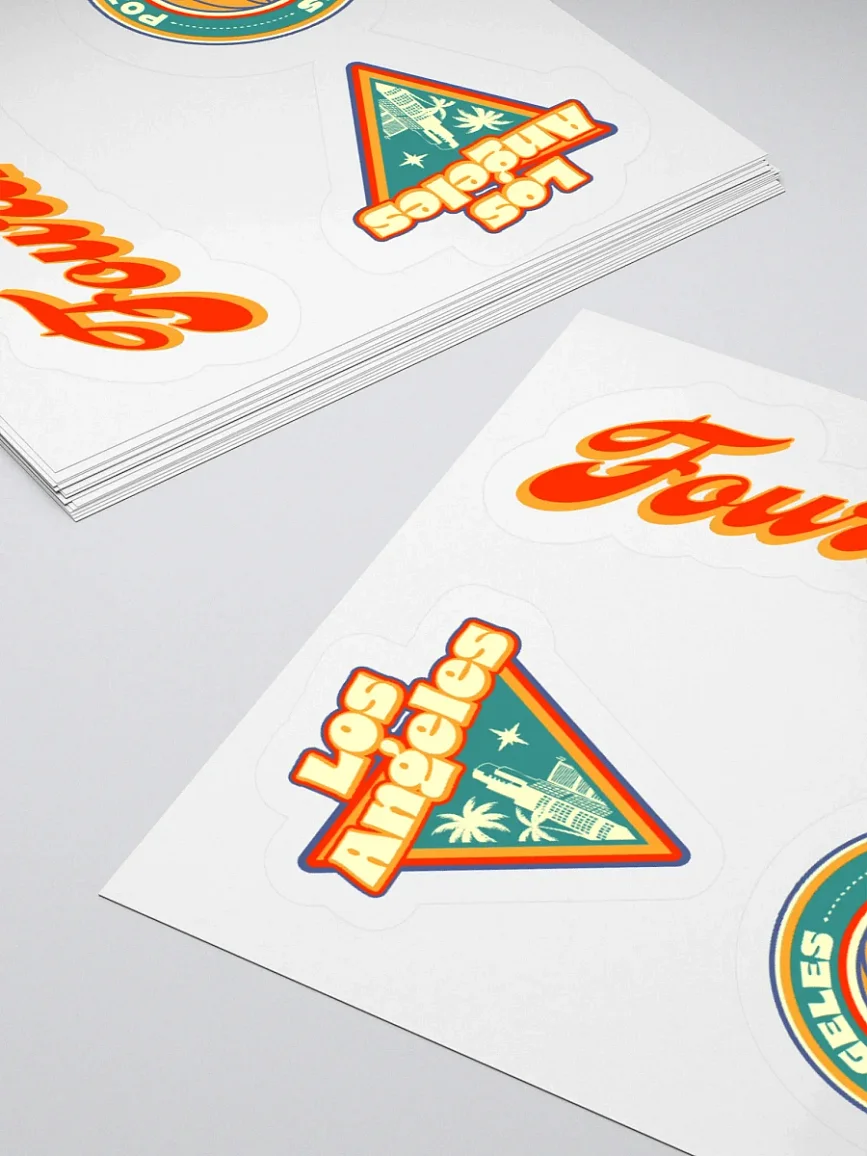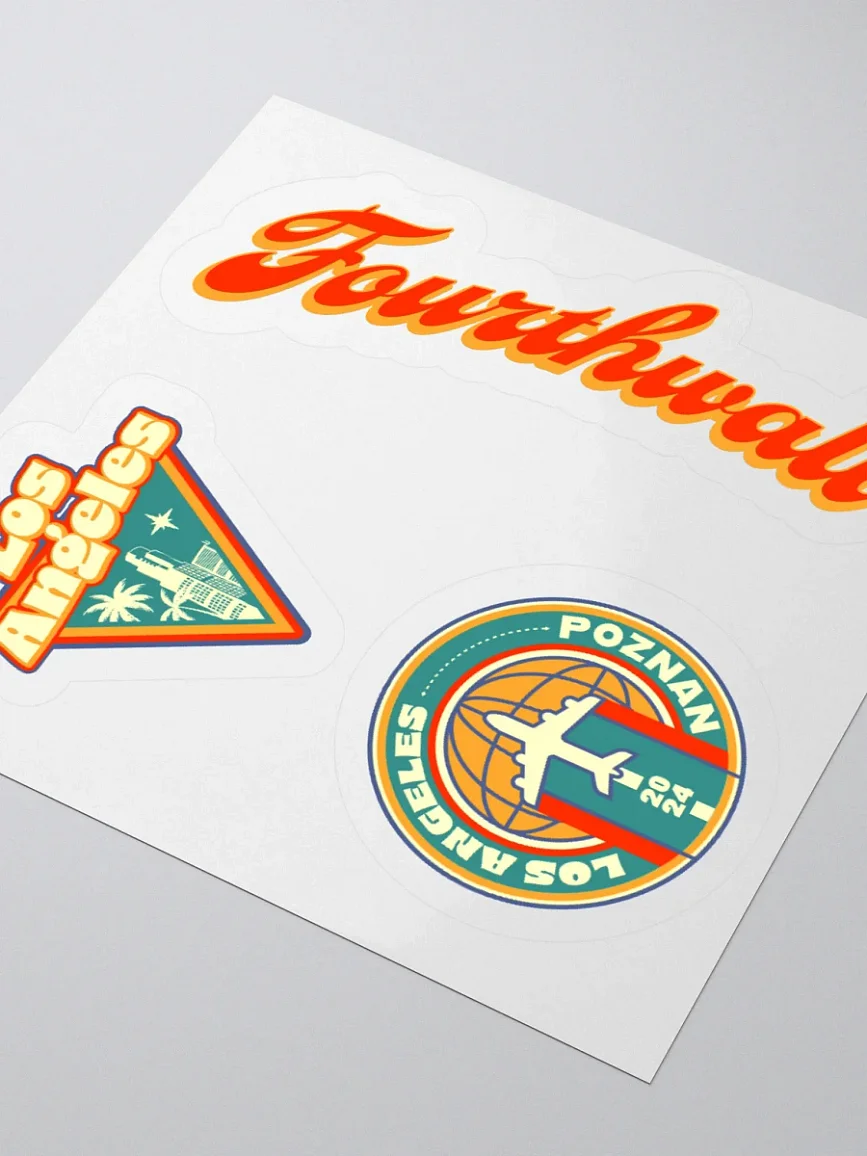10 Best Social Media Strategies for Restaurants

If you're a small-time restaurateur looking for creative ways to attract new customers, then you've come to the right place!
In today’s competitive landscape, effective social media marketing is essential for increasing your restaurant’s visibility and connecting with your audience.
Unfortunately, it takes more than just a good picture of your food to get people in your door; the real challenge lies in developing impactful campaigns that resonate with your target audience.
And while creating engaging content for your restaurant might seem overwhelming at first—especially if you're unsure of what to post—trust us, by the end of this article, you’ll have a wealth of actionable ideas and inspiration to elevate your restaurant's social media presence.
Let's get started!
Importance of Social Media for Restaurants

For restaurants, social media is not just a marketing tool; it’s a lifeline in a competitive industry.
With limited budgets and resources, these establishments can leverage platforms like Instagram, Facebook, and Twitter/X to build their brand awareness and connect with their local communities.
Social media also allows restaurants to engage with their customers by sharing updates, highlighting new menu items, and promoting special events in real-time, making it an essential strategy for increasing visibility.
Visual platforms, particularly Instagram, are vital for showcasing mouthwatering food photos that entice potential diners. In fact, according to current data from Gitnux, 75% of Instagram users take action after being inspired by a post, demonstrating the platform's power to convert views into foot traffic.
Moreover, restaurants that actively engage with their audience—responding to comments and reviews—are more likely to see an increase in returning customers, as 46% of diners have said they are more likely to revisit a restaurant that takes the time to respond to their reviews and comments online.
User-generated content also plays a critical role in building community and trust. When customers share photos of their meals or leave glowing reviews, it acts as social proof, influencing others to visit.
The same studies from above also show that 68% of customers check out a restaurant's social media presence before visiting. This organic promotion is invaluable for small establishments looking to grow their clientele without hefty advertising costs.
In a demanding industry where visibility is crucial, restaurants, big or small, can harness the power of social media to share their unique stories, establish a distinct brand personality, and keep customers coming back for more.
How to Get Involved and Choose the Right Platforms
To effectively market your restaurant on social media, it’s important to select platforms that align with your target audience. Here’s a brief breakdown of the key platforms and how they can help you promote your restaurant:
- Instagram: Ideal for high-quality food photos, videos, and live streams. Its visual nature allows you to showcase your dishes in an appetizing way, making it a must-have for attracting food lovers.
- Facebook: This platform offers versatile options for detailed posts, event promotions, and paid advertising. It’s great for building a community and sharing updates, making it a valuable tool for customer engagement.
- TikTok: Perfect for targeting younger crowds with short, engaging videos. TikTok’s trends and challenges can help your restaurant go viral, increasing visibility and attracting a new audience.
- Twitter/X: Excellent for real-time customer interactions and quick updates. Use it to respond to customer inquiries, share promotions, and engage in conversations with your community.
- YouTube: A great platform for storytelling and showcasing your restaurant’s personality. Create longer content, such as cooking tutorials, behind-the-scenes footage, and customer testimonials, to help build a deeper connection with your audience.
By analyzing where your audience spends their time, you can select the best platforms for your social media strategy and ensure you leverage each platform’s strengths effectively.
10 Ideas for Creative Social Media Marketing
1. Post High-Quality Food Photos & Videos
Nothing whets the appetite quite like food that's been beautifully shot.
Posting high-quality photos and videos of your menu items is an excellent way to keep your restaurant on the back of people's minds.
Stunning visuals on platforms like Instagram, TikTok, or Twitter/X can evoke cravings and inspire diners to visit your establishment.
Invest in quality equipment like cameras, lenses, lighting, props, and editing software to make your content pop! This will help convince potential customers that your dishes look as enticing online as they do in person.
Amboy, a burger shop located in Los Angeles' Chinatown, uses Instagram to highlight its specialty burgers by focusing on their creation. Their videos consist of time-lapse sequences that focus on the burgers' ingredients and the steps taken to craft them perfectly.
This type of quality content not only highlights your dishes in an attractive way but lets you share the stories and passion in making them, giving potential customers even more reasons to visit your restaurant.
2. Show Behind-the-Scenes Content
One of the most creative and engaging ways to connect with your audience on social media is by offering a peek behind the curtain.
Showcasing behind-the-scenes content helps humanize your brand, allowing your customers to feel more connected with your restaurant’s journey.
This type of content does a great job of showing viewers the amount of time and effort being put into the food you serve. This, in turn, creates a sense of exclusivity, making viewers feel like they're getting an insider's look at your operations and the people behind it.
If you want your behind-the-scenes footage to feel more personal to your audience, consider filming short spotlight clips featuring your staff. You can have them talk about their role, favorite menu items, or fun facts about themselves or the restaurant.
Bon Appétit Magazine posted a behind-the-scenes video on its YouTube channel about Crown Shy, a Michelin-starred restaurant in New York City.
The video does an excellent job of showcasing owner Jamal James Kent and his staff, from chef de cuisine to servers, giving viewers the opportunity to meet the faces behind these prestigious meals.
By giving a sneak peek, you create anticipation and buzz around your restaurant and offerings, ultimately driving engagement and encouraging diners to share their excitement with their own networks.
3. Create Original Shorts
The beauty of social media is that every platform presents a unique opportunity to market your brand based on its format. This means creating original content that strays away from the conventional norms of television commercials and streaming ads.
Platforms like TikTok, Instagram, and YouTube allow you to engage audiences through creative storytelling, short-form videos, and eye-catching visuals that can resonate more deeply with viewers.
So, instead of relying on expensive production costs for traditional ads, you can produce authentic, relatable content that showcases your restaurant's personality and menu items in a fun, engaging way.
For example, Chili's has excelled in creating short-formed video content on TikTok. The popular bar and grill consistently posts original content highlighting its menu and upcoming promotions.
Chili's TikToks are cleverly designed to look like user-generated content, but they are actually highly polished marketing pieces that blend humor and relatability, making them feel approachable and fun.
This strategy not only draws in potential customers on TikTok but also encourages sharing, allowing Chili's to expand its reach organically and build a community online.
4. Run Contests and Giveaways
Who doesn’t love a chance to win free food?
Running contests and giveaways is a fantastic way to boost engagement on social media and expand your restaurant’s audience. They can also introduce new merch items, which can help drive traffic to your online store.
For instance, you might invite customers to share their own creative recipes using your restaurant’s signature sauces or ingredients, with the winner receiving a complimentary meal or a feature on your social media page.
Another great example is Domino’s PSCB giveaway on Instagram, which gave followers a chance to win a bundle full of PSCB merch and a year of free pizza. To enter, all they had to do was like the post and tag a friend in the comments—it's that easy!
Simple strategies like these not only encourage your current followers to share your posts but also help increase your restaurant's visibility to their friends.
Remember, when creating your contest, it's essential to set clear rules and guidelines, as well as encourage participants to tag friends, share your posts, or use a specific hashtag to maximize your reach and engagement.
5. Promote Seasonal and Limited-Time Offers
Don’t let your customers miss out on limited-time new items or seasonal promotions!
Creating a sense of urgency is essential to getting people to interact with your content immediately. By announcing exclusive deals on social media platforms like Instagram, TikTok, and Facebook, you can drive foot traffic as customers rush to enjoy them before they're gone.
Enhance your promotions with eye-catching visuals or video content that builds excitement, quality graphics, or music that will get people commenting and coming in.
For example, BJ's Restaurants produced a short Instagram Reel promoting the arrival of their own Tropical Hopstorm IPA and Oktoberfest brews. The brief clip does a great job of showcasing BJ's popular seasonal beers while highlighting the urgency of their limited availability.
Remember to incorporate relevant tags or hashtags that not only capture the essence of your offer but also increase your post's visibility to a broader audience.
6. Create a Social Persona
Marketing on social media comes in all shapes and forms, and in the past few years, nothing has elevated a brand more than creating its own persona online.
Take Wendy's, for instance. The fast food chain has always prided itself on being unique, with its square-shaped hamburger patties and Frosties, differentiating its menu from its competitors.
However, on social media, the company has differentiated itself even further with its witty and sometimes cheeky responses.
Wendy's Twitter/X account spends most of its time trolling its competitors with hilarious responses that poke fun at their promotions. They even reply to users' posts with clever comments or reposts that showcase their signature wit, turning ordinary interactions into hilarious exchanges.
Though this strategy is highly effective for boosting engagement, constantly responding to users' comments and posts requires a lot of time and creativity.
If you want to develop a strong presence online, it's wise to hire a social media manager or team to manage your social media. This will give your accounts the resources and authority to develop a unique voice that will help your brand stand out.

7. Collaborate with Influencers
Let an influencer take over your Instagram stories for the day and get original content that hits a whole new audience.
Influencers, like celebrity chefs or creators who create original food content, often have large and engaging followings that can introduce their audience to your restaurant.
Whether it's through a series of posts on Instagram Stories, sponsored videos on TikTok, or detailed reviews on YouTube, these influencers can create buzz around your brand and showcase your menu items in a relatable and enticing way.
You can also take your collaborations a step further and make them brand ambassadors promoting their own signature dish or product related to your restaurant.
Take Buffalo Wild Wings and its collaboration with Sauce Gardner, for example. The famous wing stop and bar signed a deal with the Jets cornerback to create his own signature wing sauce: 'The Sauce Sauce.'
This collaboration not only generated excitement for Sauce Gardner and Buffalo Wild Wings fans alike but also provided a unique marketing angle that combined sports and culinary experiences.

8. Repost User-Generated Content
One of the best ways to build engagement with your audience is by encouraging them to create user-generated content, which you can repost on your feed.
This simple strategy involves allowing customers to share their dining experiences on social media and tag your restaurant in their posts.
You can even create custom hashtags to track these posts, offering customers the chance to be featured on your restaurant’s feed if they use the hashtag.
For example, Taco Bell has effectively utilized user-generated content by reposting customer videos on TikTok. The company has thrived on reposting creator videos that highlight their experience with the restaurant's food.
Whether it's through a quick review in their car or funny shorts showing their love and obsession for the company, these videos present a relatable and authentic perspective that resonates with viewers and fans of Taco Bell.
9. Create Polls & Quizzes for Engagement
Polls and quizzes are fun and interactive ways to get your audience involved in your social media content.
For instance, you can create polls asking your followers to vote on their favorite menu items or create quizzes that match their personalities to specific dishes on your menu.
These types of content not only entertain your audience but also provide valuable insights into their preferences, helping you refine your social media strategy and menu offerings.
Dairy Queen has utilized Twitter/X for years by posting polls that ask followers what their favorite items are.
This type of interactive content not only helps DQ understand its customers' preferences but also creates a fun way to engage with them while making them feel valued.
10. Invest in Ads
Though it's not as creative or cost-effective as some of the other ideas on this list, investing in social media ads can significantly boost your visibility and attract audiences to your platforms.
With precise targeting options, you can reach potential customers based on their interests, demographics, and behaviors, ensuring your promotions are seen by the right people at the right time.
Sponsored content can amplify your best posts, showcasing your restaurant’s unique items and enticing visuals to a broader audience.
By strategically investing in ads, you create opportunities for increased engagement, foot traffic, and, ultimately, a loyal customer base eager to experience what your restaurant has to offer.

Build Your Content Strategy and Sell Merchandise with Fourthwall!

Fourthwall is an excellent tool for building a social media strategy for your restaurant. The platform offers robust ecommerce integration features that allow you to design and sell custom merchandise tailored to your brand.
With Fourthwall, you can create a personalized storefront that showcases your restaurant's unique products, such as branded apparel and food-themed items.
You can also seamlessly integrate your storefront with platforms like Instagram and Facebook Shopping, TikTok Shop, and YouTube Merch Shelf, enabling you to promote your merchandise directly where your audience engages.
By leveraging these integrations, you can effectively drive traffic to your store through social media posts, stories, and videos. This makes it easy for customers to purchase your products and create a connection with your brand.
With Fourthwall, you can turn your merchandise into a powerful extension of your restaurant's identity, driving both online sales and in-store visits.
So, if you're looking to elevate your restaurant's brand, then sign up with Fourhtwall today and start transforming your social media presence into a thriving ecommerce platform.
Frequently Asked Questions
How Much Should a Restaurant Spend on Social Media?
Social media marketing can range from free organic posts to paid ads and influencer collaborations. While smaller restaurants can often thrive with minimal investment, allocating a modest budget to paid promotions can help target local audiences more effectively.
Investing even a few hundred dollars per month in paid advertising can significantly increase your visibility and attract potential customers in your area. Additionally, collaborating with local influencers can amplify your reach, as their endorsements can introduce your restaurant to a broader audience.
What Are the Best Times for Restaurants to Post on Social Media?
The best times for restaurants to post on social media generally fall during lunchtime (11 AM - 1 PM) and the evening (5 PM - 8 PM), when customers are making meal plans.
Midweek posts (especially Wednesdays and Thursdays) can also increase engagement as people start considering their weekend outings, while Fridays and Saturdays are crucial for promoting specials.
Additionally, posting around holidays or local events can capture attention. It’s important to experiment and use social media analytics to determine when your specific audience is most active, allowing you to optimize your posting schedule for maximum visibility and engagement.
Does Social Media Work for Restaurants?
Yes! Social media is one of the most effective ways to drive engagement, build customer loyalty, and attract new customers. By providing valuable and engaging content, restaurants can significantly boost their online presence and drive traffic to their doors.
Furthermore, platforms like Instagram and Facebook allow restaurants to showcase their menu items visually, share behind-the-scenes stories, and interact directly with patrons, creating a sense of community.
What Platform Is Best for Promoting a Restaurant?
Instagram is often the top choice for restaurants due to its visual focus, allowing establishments to showcase mouthwatering food photos, vibrant dining experiences, and enticing videos that can captivate potential diners.
However, Facebook remains vital for engaging a broader audience, facilitating events, and fostering community conversations among local customers. For younger demographics, TikTok is increasingly becoming a valuable platform for creative and viral marketing campaigns, where restaurants can leverage trends and challenges to engage users in a fun and interactive way.
















